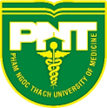- The interplay between health literacy and healthcare access is a pivotal aspect of public health. Health literacy, the ability to understand and use health information, is not just a personal skill; it’s a crucial factor that influences how individuals access and utilize healthcare services.
The Importance of Health Literacy
Health literacy goes beyond reading medical pamphlets; it includes understanding health insurance plans, knowing how to find and use healthcare services, and being able to communicate effectively with healthcare providers. It’s a cornerstone in managing one’s health and navigating the complex healthcare system.
Challenges in Healthcare Access
Access to healthcare is a multifaceted issue. It’s not just about physical proximity to healthcare facilities, but also about affordability, availability of services, and the capacity to understand and use these services effectively. People with low health literacy often face greater barriers in accessing healthcare, which can lead to disparities in health outcomes.
Enhancing Health Literacy to Improve Access
Improving health literacy can significantly impact healthcare access. This can be achieved through:
- Community Education Programs: Providing education on how to navigate the healthcare system effectively.
- Simplified Communication: Ensuring that health information and instructions are clear and straightforward.
- Cultural Competence: Offering healthcare information and services that are culturally and linguistically appropriate.
The Role of Technology and Innovation
Digital technology can play a crucial role in enhancing health literacy and healthcare access. Telemedicine, mobile health apps, and online resources can make health information more accessible, especially in underserved areas.
A Collaborative Effort
Improving the relationship between health literacy and healthcare access requires collaboration among healthcare providers, educators, policymakers, and community leaders. By addressing the barriers to health literacy, we can make healthcare more accessible and equitable.
Conclusion
Health literacy is more than an individual responsibility; it’s a key factor in ensuring equitable access to healthcare. By focusing on improving health literacy, we can work towards a healthcare system that is accessible and understandable to all, leading to better health outcomes and a more equitable society.
- 04/12/2023
- 2 Min Read
